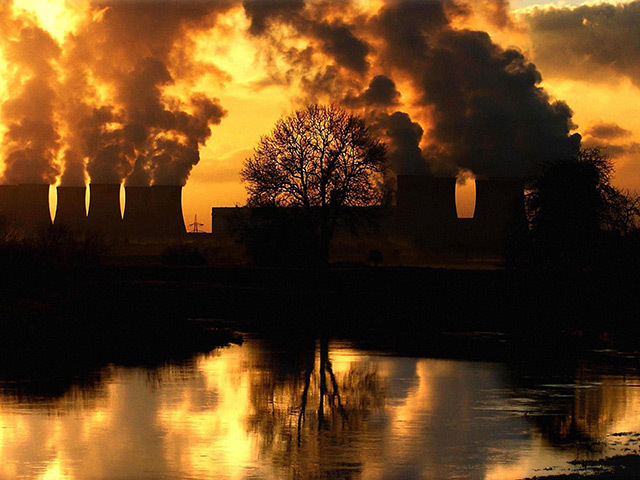
The operator of the UK’s largest coal-fired power station saw profits slump 23% as carbon prices rose and it prepared to convert two more units to burn cleaner fuel.
Earnings at Drax Group, before interest, taxes, depreciation and amortization, fell to £230million ($385 million) for 2013, compared to £298million a year earlier.
“The increasing cost of carbon drove earnings down,” said chief executive Dorothy Thompson.
“Recognizing this, we have been investing significant capital to transform Drax into one of the world’s largest renewable generators, burning sustainable biomass.”
Drax rose as much as 1.9 percent to 821 pence in London trading, and was at 819.5 pence as of 8:02 a.m. local time.
The company, whose power plant is in Selby, northern England, already has converted one of its six units to burn biomass.
Following a government decision in December to prioritize Drax for funding, the company plans to convert a further two in 2015. That will reduce its requirement for carbon permits, which power producers buy to offset their emissions.
Carbon futures have risen on speculation a European Union plan to postpone sales of some allowances will drive factories and utilities to buy more. Prices have already surged about 40 percent this year, the most among 80 commodities tracked by Bloomberg.
Drax’s plan to switch to plant-based material from coal was among 10 projects labeled “provisionally affordable” under a government program. The funding initiative is a temporary measure until the U.K. makes a decision — due next quarter — on contracts for difference, which guarantee a price for power.
“In 2016, we expect half of Drax to be fueled by sustainable biomass, some 4 percent of the U.K.’s electricity,” Thompson said.
“In delivering this transformation, we will provide cost-effective, reliable renewable power to consumers, secure jobs at Drax and across the U.K. supply chain and deliver attractive returns for our investors.”
The company also aims to bring online two wood-pellet production plants in the U.S. in the first half of 2015.
Recommended for you
